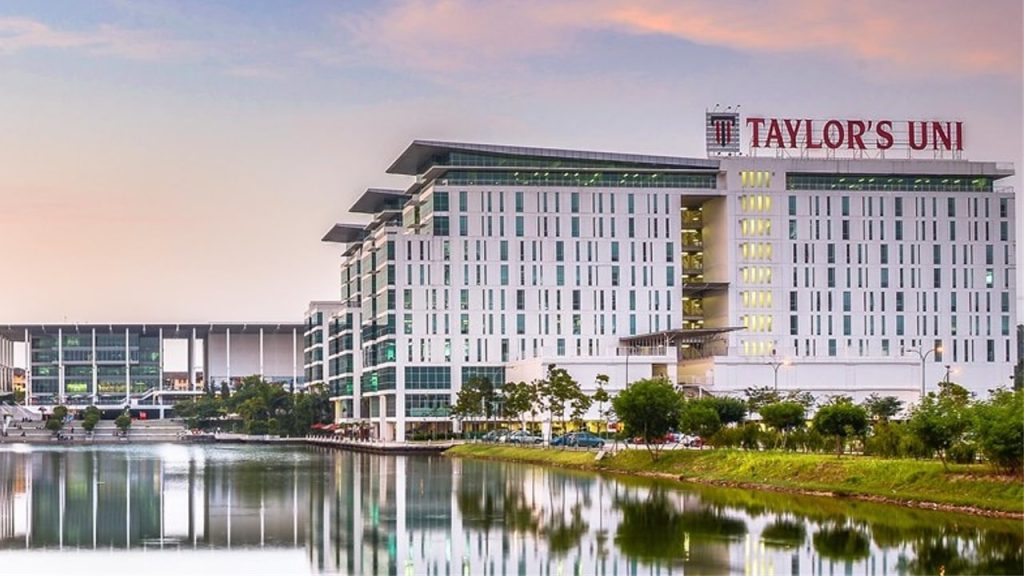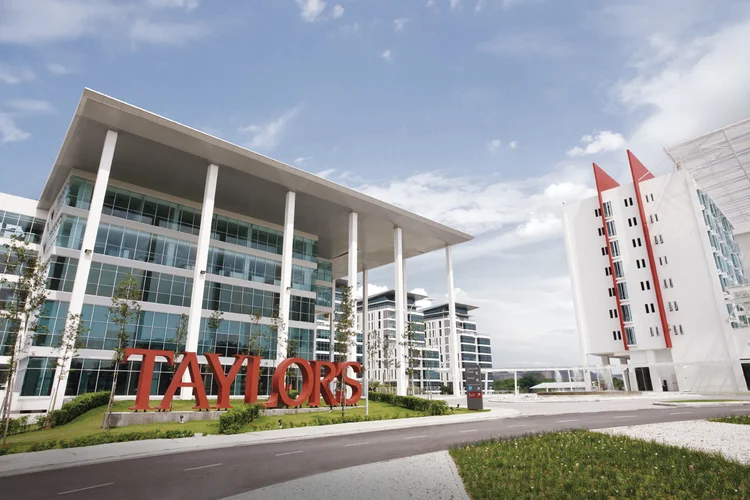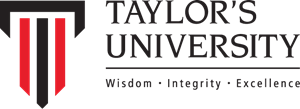OVERVIEW
Throughout this Bachelor of Science (Hons) in Culinology programme, you will have the opportunity to strengthen your research and development (R&D) skills, master kitchen practices, and gain real-life experience through our internship programme. Our curriculum focuses on four core areas: culinary arts, food science, food technology, and research and development. By integrating these disciplines, we ensure that our culinology® students are well-rounded and equipped to work on innovative and creative approaches in food product development.
You will have access to state-of-the-art facilities and the latest technology, enabling you to apply your culinary and food science knowledge effectively. Our experienced faculty members, who are experts in their respective fields, will guide you through hands-on practical sessions and provide you with insights into industry best practices.
School
Food Studies & Gastronomy
Intake Month
February, April and September
Study Options
Full time only
Industry Focused
Curriculum
Study Programme
3-year
Interested to know more? Start your journey with us now.
PROGRAMME OVERVIEW
Prepare to excel in the dynamic field of food product development with our degree programme. Join us to lead the global food industry at all levels. Explore market-oriented ideas, perfect recipes for mass production, and master sensory analysis for quality control. Customise your studies using the flexible Taylor’s Curriculum Framework. Start your journey with us and unleash your potential in shaping the future of the culinary world.
This programme is compatible with the new Taylor’s Curriculum Framework that allows students to mix & match study modules.
Primary Core
This component consists of core subjects, which are primary modules across a discipline that provides the fundamental knowledge of the discipline.
Year 1
- Principles of Culinary
- Principles of Pastry and Baking
- Food Sociology
- Culinology 101
- Principles of Organic Chemistry
- Arts and Sciences of Pastry and Baking
- Applied Food Microbiology
- Arts and Sciences of Food preparation
Year 2
- Research Methods
- Experimental Food Products & Practices
- Food Chemistry
- Food Product Design and Development I
- Sensory Evaluation of Food
- Food Preservation
- Food Packaging & Labelling
- Aromatic Ingredients & Flavour Application
Year 3 (Dual Track Options)
Option 1: For Conventional Track
- Food Product Design and Development II
- Food Processing
- Food Safety and Quality Management
- Internship
Option 2: For Entrepreneurship Track
- Ideating startup
- Food Product Design and Development I (Entrepreneurship Track)
- Internship (Entrepreneurship Track)
Note: All information is subject to change. Readers are responsible for verifying information that pertains to them by contacting the university.
University Core
This component aims to develop critical thinking, build up social intelligence and cultivate civic responsibility as well as broaden cultural knowledge. These consist of compulsory and nationally-mandated study modules required by the Malaysian Ministry of Higher Education.
- Penghayatan Etika dan Peradaban / Bahasa Melayu Komunikasi 2
- Falsafah dan Isu Semasa
- Emotional Intelligence in Action
- Kursus Integriti Dan Antirasuah
- Social Innovation Project
Note:
- Students are requested to take Bahasa Kebangsaan A if they do not obtain a Credit for Bahasa Malaysia in SPM.
- All information is subject to change. Readers are responsible for verifying information that pertains to them by contacting the university.
Flexible Education
The Flexible Education component offers students the flexibility to explore modules in a related or unrelated field, enhancing and complementing their primary major. This component allows students to broaden their knowledge and skills by selecting modules from the same or different schools within the university.
Flexible Education can take various forms, including free electives, extensions, minors, or even a second major. These options provide students with the opportunity to delve deeper into a specific area of interest or broaden their understanding by exploring a different field of study.
Click here to see a full list of all available Complementary Studies Components.
Extension
You will need to choose one of the package below.
Option 1: Nutrition & Food Analysis
- International Cuisine
- Molecular Gastronomy
- Food Styling
and choose any TWO (2) of the below modules:
- Nutraceutical and Functional Food
- Techniques in Food / Nutrition Research
- Introduction to Halal Food
- Food Business Management
Option 2: Gastronomy
- International Cuisine
- Molecular Gastronomy
- Food Styling
and choose any TWO (2) of the below modules:
- Food Business Management
- Food Media
- Food Styling
- Food Trends and Products Innovation
Option 3: Patisserie
- Modern Gateau and Petit Four
- Sugar & Chocolate Artistry
- Science of Baking
and choose any TWO (2) of the below module:
- Food Business Management
- Food Media
- Food Styling
- Food Trends and Products Innovation
Minor
You will need to select any Minor packages offered by Taylor’s University. We have provided some suggested Minors below, and you can refer to the Flexible Education Guide for the complete list.
Second Major
You will need to select one of the Major packages offered by Taylor’s University. You can refer to the Flexible Education Guide for the complete list. The major offered are subject to availability and you will need to meet the minimum module pre and co-requisite.
Free Electives
You will need to select any five (5) of the Free Electives offered by Taylor’s University. You can refer to the Flexible Education Guide for the complete list.
The free electives offered are subject to availability and you will need to meet the minimum module pre and co-requisite.
ENTRY REQUIREMENTS
Are you ready to take the next step in your academic journey? Our programme offers an exciting opportunity for individuals passionate about the field of Bachelor of Science (Hons) in Culinology. To ensure a smooth admission process, please take note of our entry requirements listed below.
Prerequisites
Pass SPM / O-Level or equivalent with 5 credits for entry with Pre-University / Foundation qualification (Except for UEC).
SPM / O-Level with Diploma
Pass SPM / O-Level or equivalent with 3 credits for entry with Diploma qualification.
- 1.Candidates need to pass BM and History at SPM level.
- 2. All information is subject to change. Readers are responsible for verifying information that pertains to them by contacting the university.
Entry Requirements
Pass with min. CGPA 2.00; or
Pass Advanced Diploma in Patisseries & Gastronomic with min. CGPA 2.00
Sijil Tinggi Persekolahan Malaysia (STPM)
Min. CC with CGPA 2.00
Unified Examination Certificate (UEC)
Pass with min. 5Bs
A Level
Min. DD
AUSMAT (SACEi)
Min. ATAR 60
Canadian Pre-University (CPU)
Min. average of 60% in 6 subjects
International Baccalaureate (IB)
Min. 24 points in 6 subjects
Monash University Foundation Year (MUFY)
50%
MOHE Matriculation
Pass with min. CGPA 2.00
DKM/DKLM/DVM
Pass with a minimum CGPA 2.50 subject to Senate approval of the relevant institutions; or
Graduated with a minimum CGPA 2.00 with a minimum of two (2) years of work experience in the related field.
Other Equivalent Qualification
Pass Foundation/Diploma / Higher Diploma/Advanced Diploma from other institution recognised by Malaysian Government with min. CGPA 2.00; or
Application via APEL A is allowed; or
Any other equiv. qualification recognized by the M’sian Government.
Notes:
- Candidates without a pass in Mathematics and English at SPM level or its equivalent may be admitted if the STPM / Matriculation / Foundation / Diploma programme contains subjects in Mathematics and English that are equivalent and achieved higher at SPM level.
- All information is subject to change. Readers are responsible for verifying information that pertains to them by contacting the university.
English Requirements
IELTS, TOEFL, MUET, UEC English
Pass English
Taylor’s EET
Overall score 5.0
Taylor’s IEN
Level 2 – Grade C
Pre-University/Diploma
Complete Pre-University/Diploma that was conducted in English
INTERNATIONAL STUDENTS
IELTS
5.5
Pre-University/Diploma
Complete Pre-University/Diploma that was conducted in English
Note: All information is subject to change. Readers are responsible for verifying information that pertains to them by contacting the university.
FUTURE CAREERS
When you’ve successfully completed this Bachelor of Science (Hons) in Culinology programme, you could embark on any of these exciting careers, including:
- Research Chefs / Culinologist
- Product Development & Formulation Specialists
- Business Development & Merchandising Executive
- Product Assurance Manager
- Manufacturing Science & Technology Specialist
- Food Solutions Consultant
- Culinary Research Technologist
- Ingredient Sales and Technical Support Specialist
- Production Manager
- Food Scientist














